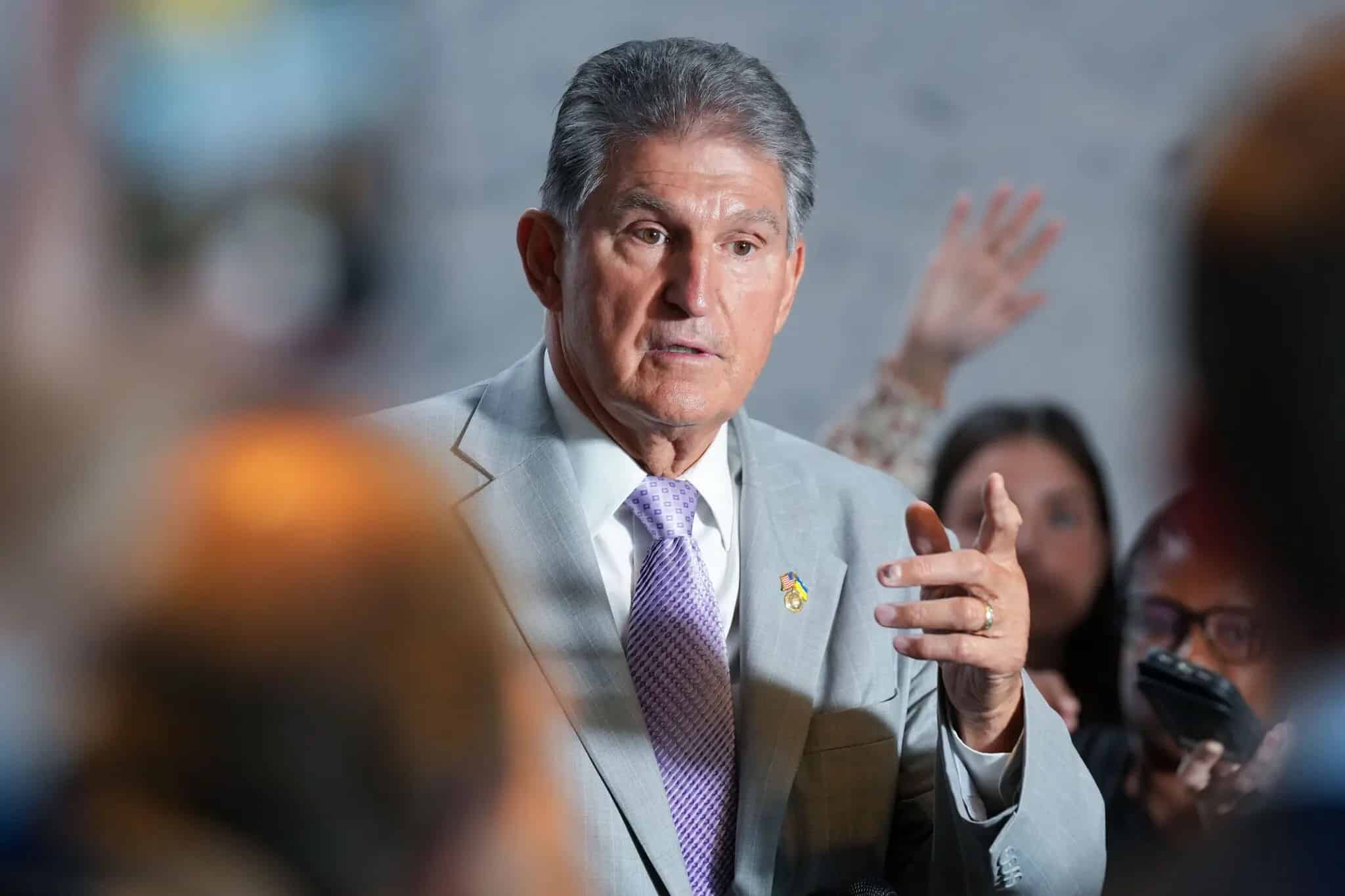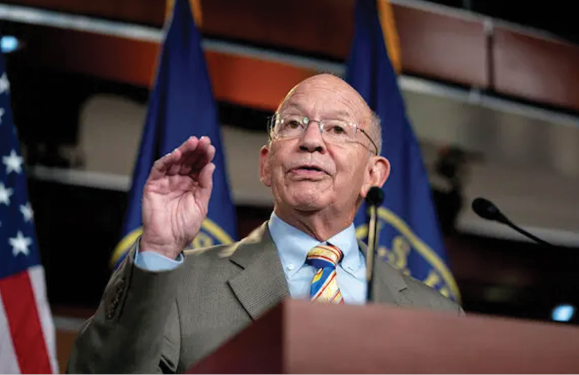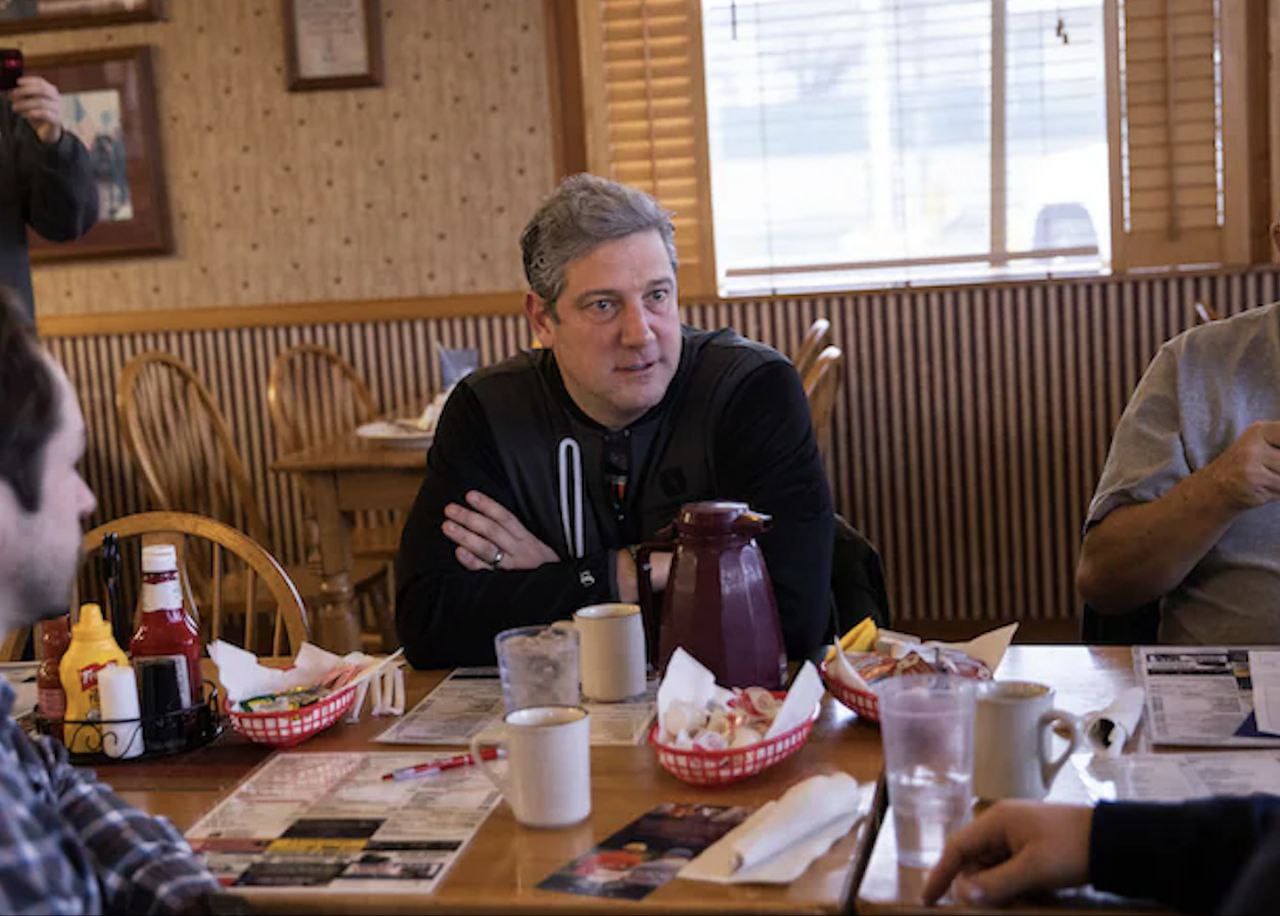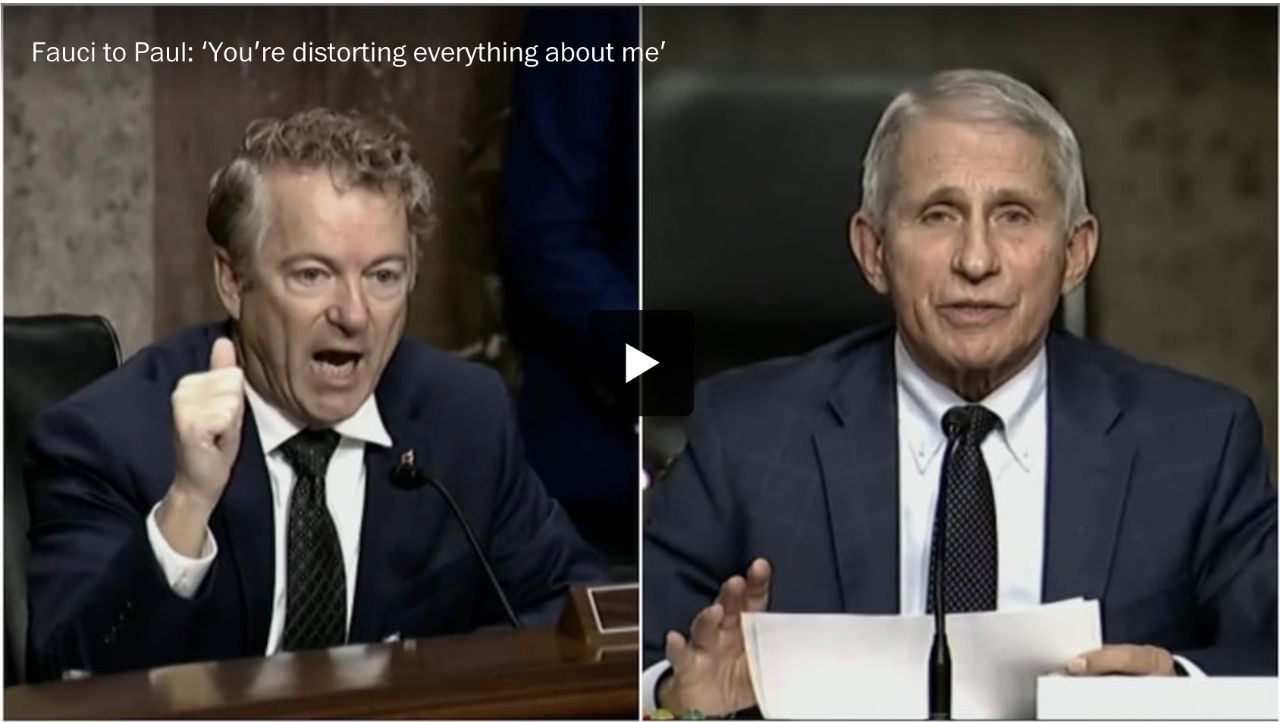Anthony S. Fauci accused Sen. Rand Paul on Tuesday of raising campaign funds off false attacks on him that have encouraged threats on Fauci’s life.
Throughout the pandemic, Paul (R-Ky.) and other conservatives have questioned the science behind vaccines, masks and other public health measures and spun conspiracy claims about Fauci having a role in the creation of the coronavirus. The attacks on Fauci, who is President Biden’s chief medical adviser on the coronavirus and director of the National Institute of Allergy and Infectious Diseases, have grown increasingly hostile in recent months, and Fauci has been under stepped-up security protection since 2020.
On Tuesday, Fauci demanded to speak uninterrupted after Paul accused him in a Senate Health, Education, Labor and Pensions Committee hearing of helping orchestrate a smear campaign against three conservative academics who opposed shutdown measures in 2020. But the emails Paul pointed to showed Fauci merely sending colleagues a link to a Wired article debunking claims about reaching “herd immunity.”
Fauci called Paul’s repeated attacks a distortion of reality and blamed such falsehoods for spurring threats on his life. He cited the arrest of a California man in Iowa last month who police said was traveling to Washington with an AR-15 rifle and multiple magazines of ammunition. The man allegedly had a “hit list” including Fauci and several others, mostly Democratic politicians.
“What happens when [Paul] gets out and accuses me of things that are completely untrue,” Fauci said, “is that all of a sudden that kindles the crazies out there, and I have … threats upon my life, harassment of my family and my children with obscene phone calls because people are lying about me.”
Fauci went on to say that some have gone beyond mere harassment. “As some of you may know, just about three or four weeks ago on December 21st, a person was arrested who was on their way from Sacramento to Washington, D.C., at a speed stop in Iowa,” Fauci said. “And they asked, the police asked him where he was going, and he was going to Washington, D.C., to kill Dr. Fauci.”
A federal complaint says that Kuachua Brillion Xiong, 25, was arrested in Iowa with an AR-15 and multiple magazines of ammunition in his car. When questioned, the complaint says, Xiong said he intended to kill Fauci, former presidents Bill Clinton and Barack Obama, Meta founder Mark Zuckerberg and potentially Biden. The complaint against Xiong does not mention Paul. An attorney for Xiong has indicated in court that he plans to use an insanity defense.
Meanwhile, on Paul’s website, the anti-Fauci falsehoods have been put to work as a fundraising strategy, Fauci said at the Senate hearing Tuesday.
He noted that the senator’s website says “Fire Dr. Fauci” and includes “a little box that says contribute here.”
“You can do $5, $10, $20, $100,” Fauci said. “So you are making a catastrophic epidemic for your political gain.”
Paul rejected the criticism, saying it was “disappointing for you to suggest that people who dare to question you are responsible somehow for violent threats.” Afterward, Paul’s campaign sent out a mass fundraising email (subject line: “Fauci is hysterical”) and shared more than a dozen tweets and videos of their clash.
Paul and others have falsely claimed Fauci is part of a conspiracy that led to the creation of the coronavirus in a Chinese lab. In recent months, Fauci’s office has been swamped by viral claims of misinformation and he and family members have faced harassment and security concerns. A Fox Nation host who was a guest on Fox News recently compared Fauci to a Nazi doctor known as the “angel of death.” Right-wing personalities routinely call for his ouster while hashtags such as #FireFauci and #FauciKillsPuppies trend on social media.
Paul said in a statement after the hearing that he was one of the lawmakers at the baseball practice in which Rep. Steve Scalise (R-La.) and others were shot in 2017. Reports showed the shooter was a supporter of Sen. Bernie Sanders (I-Vt.). “I never once accused Senator Sanders of being responsible for the attack and I resent Fauci avoiding the question by ginning up the idea that his opponents are the cause of threats,” Paul said.
Sen. Mitt Romney (R-Utah) spoke out in support of Fauci and the other scientists from the Biden administration testifying Tuesday, without criticizing Paul by name, in an otherwise heavily partisan hearing.
“I’m sure you who are testifying here today recognize that some of what we do is performing and some of what we do is to become informed. AndI do both from time to time. So I’m not just in one camp or the other in that regard,” Romney said. “But I do want to point out how much I personally — and I believe the great majority of the people in our country — respect you individually and professionally for the work that you do. You are scientists, not politicians. Nevertheless, you are being made subject to the political whims of various political individuals. And that comes at a high cost, which unfortunately, I fear will lead some to not want to participate in helping our government.”
After the hearing, Health and Human Services Department spokesman Ian Sams said in a statement that it was “disappointing and frankly unacceptable that Republican senators chose to spend a hearing with the country’s leading public health experts spreading conspiracy theories and lies about Dr. Fauci, rather than how we protect people from COVID-19.”





